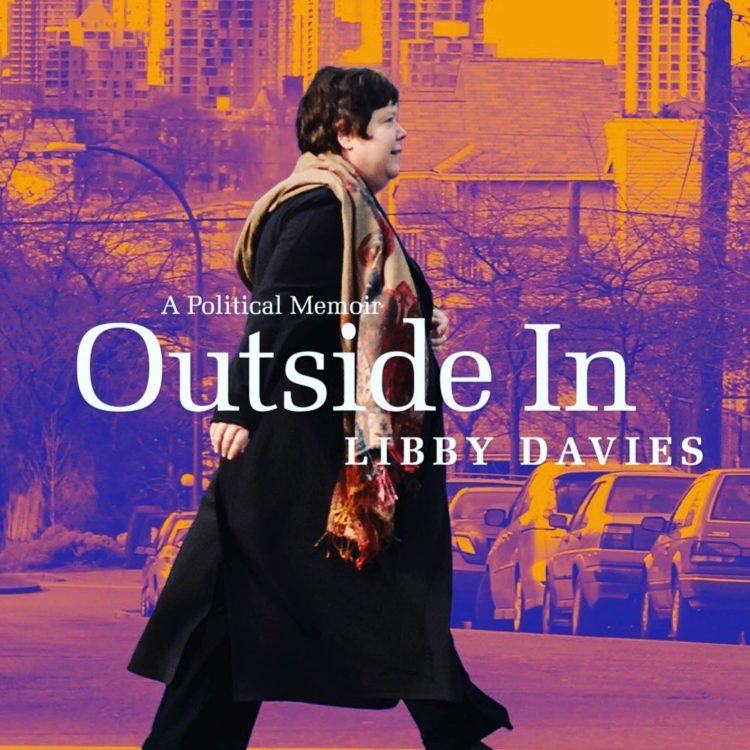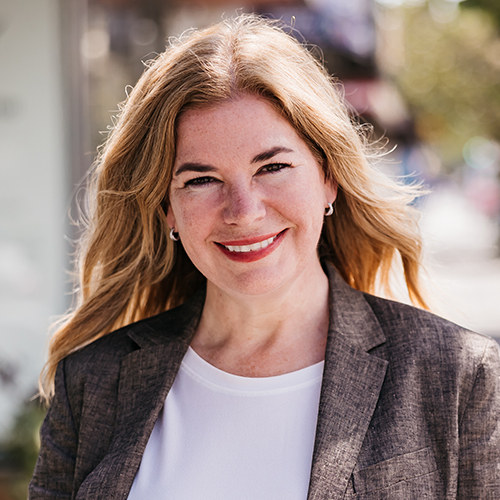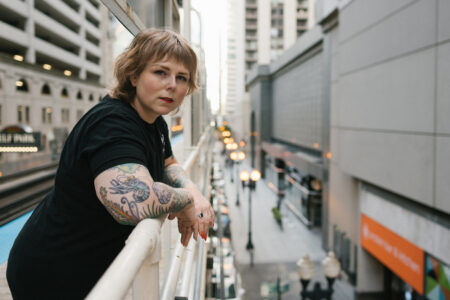
Jeanette Ashe: You’re one of few women ever elected to Canada’s House of Commons, and you were also the first openly lesbian MP — where today LGBTQ MPs make up approximately 2 percent of the House. When you were first elected in 1997, there were only 62 women MPs, and when you left in 2015, there were 77 women MPs. This isn’t a terrific increase. Today, even with a prime minister who calls himself feminist at the helm, women make up only 27 percent of all MPs. While this is a record high, in real numbers it is only 90 women — less than one third of all MPs. And compared with other similarly situated countries, Canada’s international ranking of 62nd out of 193 is embarrassingly low, with most established democracies and many nondemocracies ahead of us.
We know women’s experience during the “pathway to Parliament” is different than men’s: they’re less likely to get recruited, to put their names forward, to get supported, to win the nomination, to sit in the House, and once there, they’re less likely to stay and get promoted to the front benches. But you shattered these odds.
Libby Davies: It never entered my mind that I shouldn’t run because I was a woman, but along the way I’ve reflected on the barriers. I don’t recall the party encouraging me the time I first ran — if anything, it was “hands off.” I’d been a parks commissioner and city councillor prior to running — and I had also run for mayor — so I had the experience behind me. I was encouraged by people in the community to run, and I wanted to run because I was so frustrated that the government had cut social housing as part of its austerity program in 1995. Before I put my name forward, though, I thought about who else was running, in particular a well-known male activist in the community. I was concerned about having two well-known activists run against each other, and I tried to speak to him about it. He didn’t divulge what he was planning. I realize now that my approach to running was gendered. In the end, I went ahead and ran. I discuss this in more length in my book.
Winning the nomination
JA: Many frame the “why are so few women in politics” question as a party issue: to get elected, you first need to get selected as a party’s candidate in a coveted “safe seat.” Party members are often inclined to choose candidates who look like politicians who’ve come before. Among other things, “standard-model candidates” tend to be white straight men. Many believe voters prefer such candidates, although research fails to support this claim. Still, in some parties, members are much more likely — with my own work suggesting up to five times as likely — to choose men over women.
LD: In that first nomination I ran against four men and it was a tough race — I won by a handful of votes. Over the years I’ve talked to many women who’ve sought nominations, some successful, some not. They all said the same thing: it wasn’t what they expected. It was combative, stressful and hard to raise money, and they often felt like they were up against an invisible set of controls that didn’t include them. I made it through because I had people on my side who knew how it worked — inside the party, and that was critical. These were people who knew how to sign up members and work a campaign. The nomination speech was crucial, and I worked hard with my team to hit the key issues, and to practise, practise, practise. I had a base from my previous electoral and activist experience and a reputation as a progressive fighter, having been a city councillor for five terms. Without that experience and support I think I would have been lost and would have lost the nomination too!
Getting elected
JA: The masculine culture in society transfers to parties and legislatures. The historical exclusion of women from public life permits masculine practices and gendered outcomes: for example, once elected, women are less likely to be promoted at the same rates as men. It’s also well documented that there’s a problem with retention when it comes to women MPs — once elected, they don’t stick around for as long as men. Not only were you promoted to front bench positions, including House leader and deputy leader, but you were elected six times.
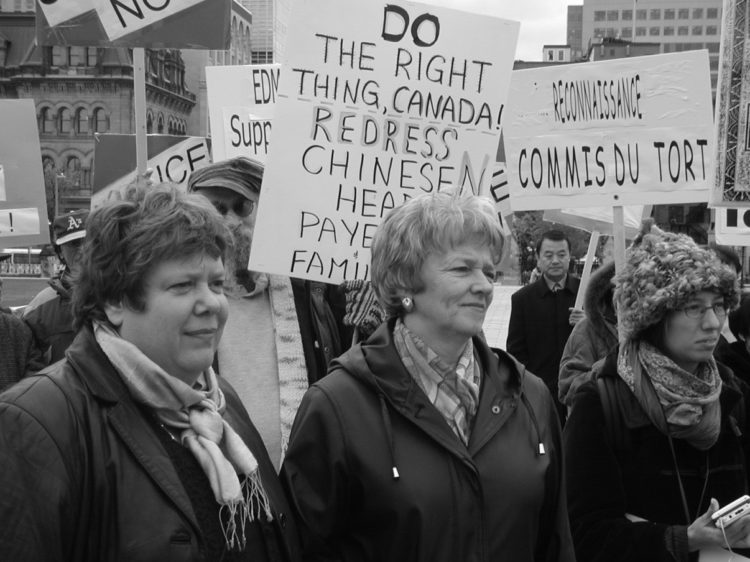
LD: It’s much harder for women to stick around, especially if they have a young family. I was lucky that my son was already a young adult, but I talked with many women MPs who struggled with the conflicting messages from their party: on the one hand being told they supported women in office, but then facing the challenging hours of work, and the expectation that the party’s needs were top of the list of demands on your life. It seems like a never-ending struggle. Over 18 years I had the opportunity to work with several leaders — Alexa McDonough, Jack Layton, Nycole Turmel and Thomas Mulcair — as well as several PMs, including Jean Chrétien, Paul Martin, Stephen Harper. Women — especially the female leaders — faced a tough time in these years. What finally started to make a difference was the number of women and young people elected in the Orange Wave of 2011 — this is when issues like harassment, sexual harassment and family accommodation began to be seriously discussed.
Parliament Hill is like a sports game — it has winners and losers, and as a player you’re expected to take one for the team no matter the cost to your integrity. There’s an expectation that MPs will always play the game even when the rules aren’t written down but are shared through an inherited culture of rewards and punishments, and are reinforced by the media who are quick to report on the play-by-play. These unwritten rules were applied differently to women, and the punishments were harsher for women. For example, I remember when Belinda Stronach crossed the floor from the Conservatives to the Liberals, giving them a critical budget-passing vote, in 2005. The gendered, derogatory language was unbelievable and appalling — both what was permitted in Parliament and especially how it appeared in the media. In contrast, when a male MP crossed the floor to another party, it was generally seen as a matter of principle!
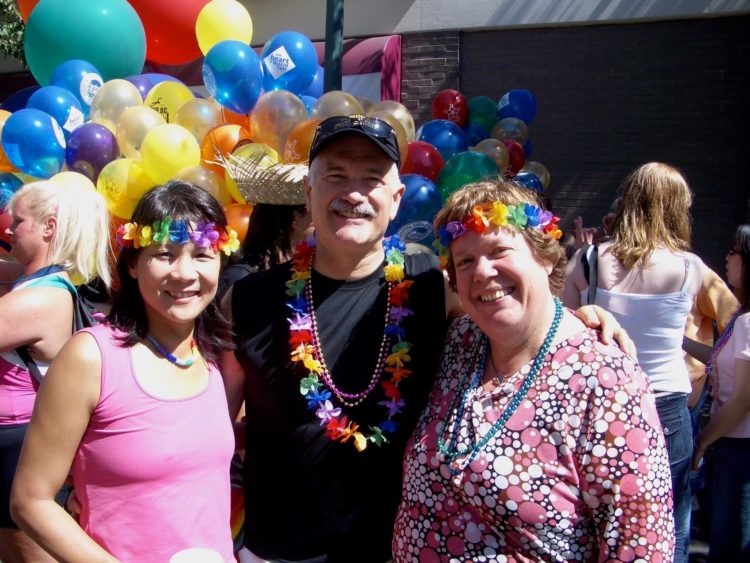
I was astounded to learn there had only ever been one other woman House leader in the history of Parliament, and then only for a few weeks. I managed to last eight and a half years. It was here again that polite persistence and not playing games of one-upmanship helped me navigate the turmoil and unpredictability of minority Parliaments as NDP House leader.
Reflections
JA: Women are still underrepresented, not just in the House but as committee members, chairs and Speakers. The calendar, night sittings and inadequate child care make it difficult for many MPs to fully participate in the work of Parliament, especially those who are in the later stages of pregnancy, breastfeeding or caring for dependants. And #MeToo has arrived on the Hill. It’s no secret that women MPs and staff are subject to sexual harassment and are much more likely to experience gender-based heckling. Even beyond the Hill, women MPs are subject to much more sexual harassment on social media. But policies, where there are any, fail to address the deep masculinized power structures of Parliament. We’ve just seen two women senior cabinet ministers kicked out of the Liberal caucus — one of whom was the first Indigenous woman minister of justice and attorney general. The intersectional implications of this were not lost on the dozens of young diverse women participating in Daughters of the Vote, who turned their backs on the PM.
Your story as told in Outside In gets at the guts of Parliament’s masculine culture and offers insight into making it a more gender- and diversity-sensitive place, so that everyone working there — from MPs to staff — can fully participate.
LD: Changing the sexist and patriarchal history of a place like Canada’s Parliament is no easy task! The biggest challenge is getting more women and underrepresented groups elected. Talk isn’t good enough anymore — it’s the actions that count. This change is happening — the growing presence and power of younger voices, as in #MeToo or the Indigenous rights movement, is inspirational.
Parties must not only seek out candidates from underrepresented groups — they must demonstrate they’ll change the political culture so that when we’re elected, we can be successful and not made invisible. We must demonstrate that those powerful unwritten rules that are so crushing if you don’t play the game can be thrown out in favour of transparency and building good will, not hyperpartisanship.
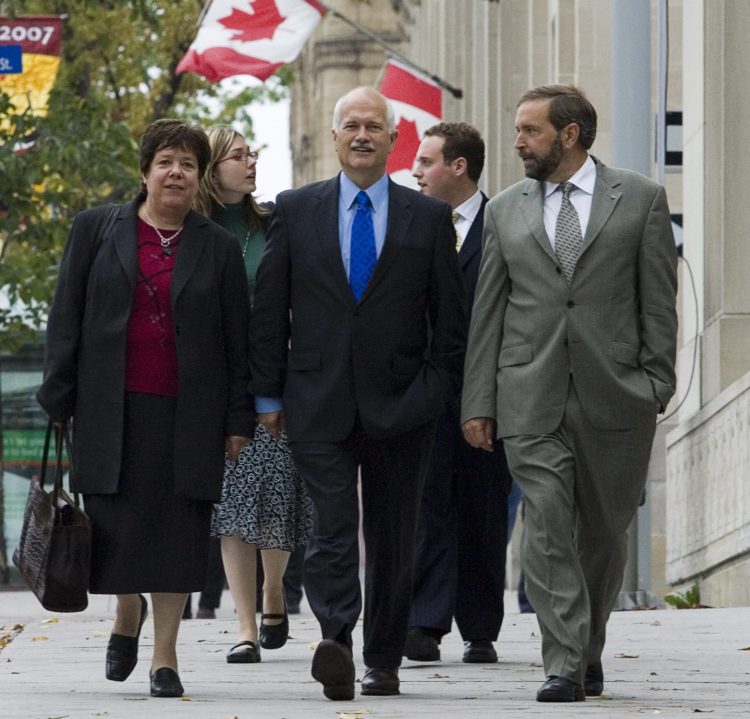
The media can be sexist and homophobic in its reporting — from how we dress (when a man can just wear the same suit every day!) to how women are characterized as “aggressive” or demeaned as “hysterical” when they try to be heard. I’ve had my own experiences of homophobia in media and federal politics, which I describe in my book, from how the media relayed my experience of coming out, to how opponents from other parties have tried to use homophobia to their political advantage.
Progressive women leaders approach politics differently. Look at PM Jacinda Ardern in New Zealand and what a difference she has made. Look at younger women who are African American and Latina who are taking elected office in the toxic environment in US politics. We have a duty to speak out. Rights are never handed out. We fight for them and then must make sure they are not eroded and undermined.
It’s a lifetime of work.





